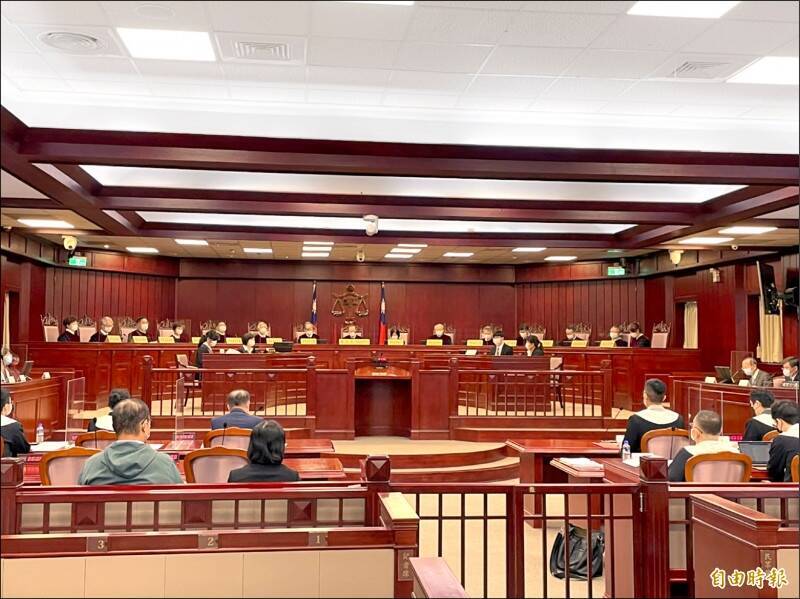The Constitutional Court is scheduled to announce the constitutional interpretation case on January 13.
Schematic diagram of the Constitutional Court.
(Photo by reporter Wu Zhengfeng)
[Reporter Wu Zhengfeng/Taipei Report] Two families surnamed Chen and Xu questioned Article 4 of the "Regulations on Sacrifice Public Business", which stipulates that "the public sacrifice business that existed before the law came into effect, if there is no regulation, in principle, males will be dispatched as subordinates (sacrifice rights Inheritor)", violated women's rights, violated gender equality, petitioned for constitutional interpretation, the Constitutional Court announced on the 5th, and announced the verdict on January 13.
The Secretariat of the Constitutional Court pointed out on the 5th that the Constitutional Court will hear the 2009 Xian Erzi No. 110 petitioner Chen Chunmei and others, and the 2011 Xian Erzi No. 529 Xu Jinhe and other four petitioners will be heard at 3:00 p.m. on January 13. The Constitutional Court (4th Floor, Judiciary Building) pronounces its verdict.
Please read on...
A total of 32 seats are open for the public to observe. Those who want to observe should hold a national ID card or other documents issued by government agencies that contain photos, names, dates of birth, and ID card uniform numbers, etc., which are sufficient for identification. From 2:15 p.m. to 2:45 p.m. on the 13th, arrive at the entrance on the 1st floor of the Taiwan High Court Criminal Court Building, No. 127, Boai Road, Taipei City. Fill in the hearing pass collection form in line with the order and check your ID card before issuing it, until the quota is full. .
The ritual industry has accumulated huge assets. In recent years, there have also been women who wanted to be dispatched members, but failed due to restricted regulations. The Chen and Xu families argued that this regulation violated gender equality and petitioned for constitutional interpretation.
The issue in this case is the latter paragraph of Article 4, Paragraph 1 of the Regulations on Sacrificing Businesses, which stipulates: "For public offerings of sacrifices that existed before the implementation of this regulation... if there is no statute or the stipulations are not stipulated, the subordinates shall be the founder and his male descendants (including adopted sons) ).” The first paragraph of the second paragraph of the same article also stipulates: “A member of the dispatch who has no male descendants, and whose daughter is not married, can be a member of the dispatch.” Is it unconstitutional?
The party that petitioned for the interpretation of the constitution argued that this provision only allows men to be dispatched members, which violates the right to equality between men and women in Article 7 of the Constitution, and also violates the Convention on the Elimination of All Discrimination against Women adopted by the United Nations resolution; men can still serve as dispatched members after they get married. Why do women lose their right to dispatch when they get married? Sacrifice to the public is not only a status right, but also a property right. The prohibition of women's inheritance has violated the relevant constitutional rights.
The Ministry of the Interior, the authority in charge of the regulations on public sacrifices, stated that the regulations do not directly use gender as the classification standard, but because Chinese folk customs have given men the obligation to "worship ancestors" in the past, so the right to dispatch "those who have not undertaken sacrifices" is excluded, and it is not aimed at "Female"; "Taiwan Civil Customs Survey Report" also pointed out that "ancestor worship must be performed by male grandchildren, and family property should be inherited by the family members who inherit the sacrifice", which is different from the inheritance regulations of civil law.
